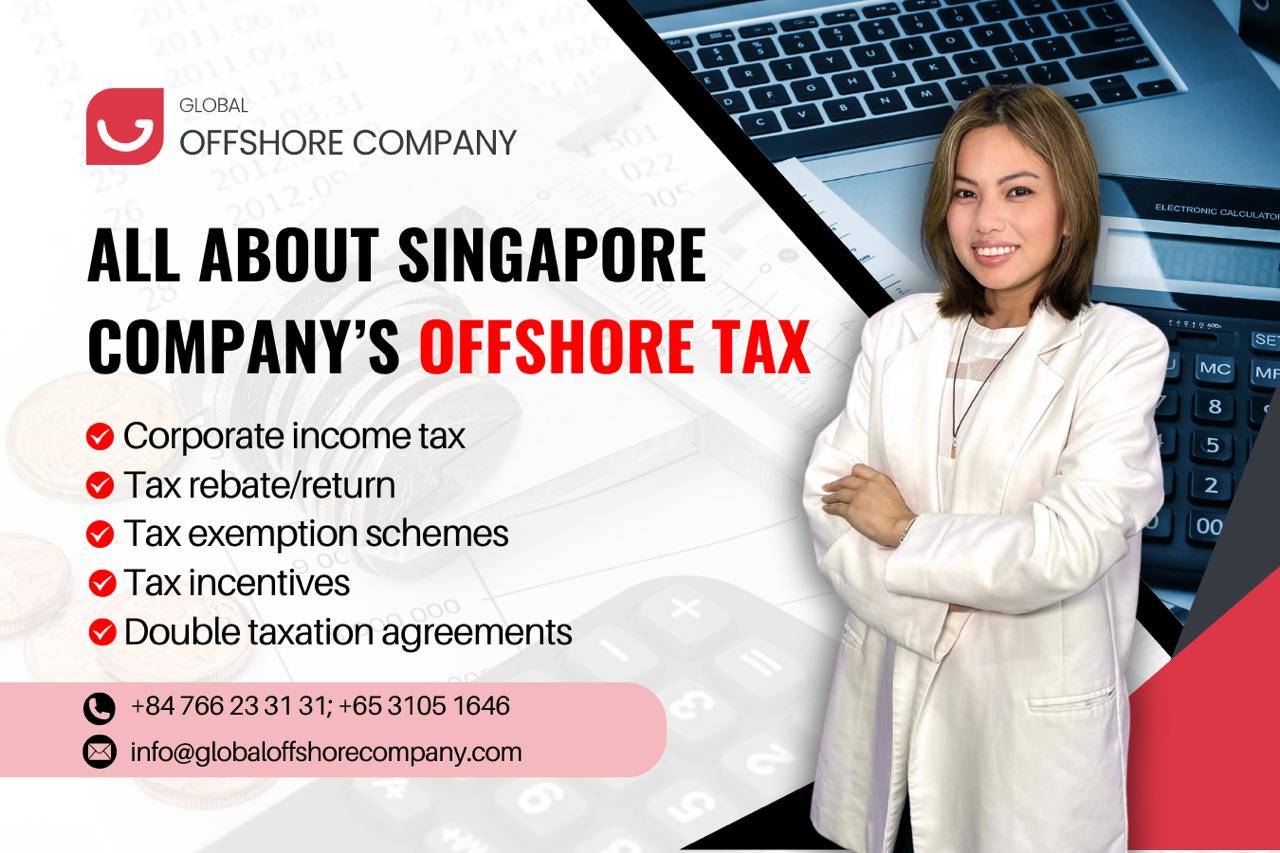Exploring Common Taxes Applicable to E-commerce Businesses in Singapore
Embarking on the journey of establishing your Singaporean e-commerce enterprise requires a comprehensive understanding of the country's intricate tax regulations. This article aims to shed light on the tax landscape and how it intertwines with your e-commerce pursuits in the dynamic Lion City.
1. What is the Singapore tax system for Private Limited Company?
The corporate tax rate for Singapore Private Limited Companies is 17%.
For qualifying start-up companies, there is a Start-Up Tax Exemption scheme. Under this scheme, qualifying companies can enjoy a 75% exemption on the first S$100,000 of normal chargeable income and a further 50% exemption on the next S$100,000.
Singapore offers partial tax exemptions for certain qualifying companies to encourage entrepreneurship. Qualified companies can enjoy 75% exemption on the first $10,000 of normal chargeable income and afurther 50% exemption on the next $190,000 of normal chargeable income.
The Singapore tax system may seem straightforward on paper, but it can get complicated and contentious when it comes to applying to e-commerce businesses. Therefore, you must understand the nature of the profits and the types of transactions that generate them in order to identify the source of income.
2. Distinguish GST and Income Tax for Singapore E-commerce Businesses
Singapore's e-commerce landscape necessitates adherence to various tax categories, including:
1. Corporate Income Tax: This tax corresponds to a company's profits and is levied at a rate of 17%. Diverse tax schemes are also available to explore.
2. Goods and Services Tax (GST): In Singapore, all sales of goods and services by GST-registered businesses must be subject to 8% GST, unless the sale qualifies as zero-rated or exempt under the GST law. GST is charged on:
- Supply of goods and services in Singapore ( is collected by the GST-registered supplier and paid to Comptroller of GST)
- Importation of goods into Singapore (is collected by Singapore Customs at the point of importation)
It's noteworthy that if your global e-commerce sales (applicable to taxable turnovers) do not surpass S$1,000,000, GST payment might not be obligatory. Voluntary registration may also be beneficial for businesses to claim input tax credits. Conversely, in line with Singaporean regulations, exceeding this threshold necessitates fulfilling duties such as VAT registration, tax payment, invoice documentation, and tax filing.
3. Excise Duty: E-merchants dealing in alcohol and tobacco should be attentive to excise duty, a tax encompassing the import or sale of specific goods.
3. Strategies to Optimize Tax Efficiency for Singapore E-commerce Entities
1. Meticulous Record-Keeping
Maintaining meticulous records of income and expenses is a foundational practice. These records form the basis for accurate tax calculation. Robust record-keeping not only ensures compliance but also facilitates identifying potential areas for optimization.
2. Seizing Tax Deductions and Allowances
E-commerce businesses can optimize their tax landscape by capitalizing on various tax deductions and allowances. These provisions offer the potential to offset expenses, such as costs related to internet access, web hosting, and advertising. Strategic utilization of these allowances can contribute to significant tax savings.
3. Leverage GST Exemptions for Exported Goods
E-commerce ventures exporting goods from Singapore can tap into the Goods and Services Tax (GST) exemption, provided they meet the qualifying criteria. You may have come across the “Guide on Exports”, which refers to the agreement that sets out the list of documents suppliers are required to keep in order to enforce a zero-rating on the supply. Leveraging this exemption can bolster competitiveness and enhance the overall financial outlook.
4. How to find your tax return
- Keeping accurate financial records for business transactions
- Declare your business income
- See if you have any other business income to report
- Apply for tax deductions and tax rebates
5. In Conclusion
The e-commerce terrain in Singapore, while laden with opportunities, presents its own array of uncertainties, particularly in the realm of taxation. However, a proactive approach backed by meticulous understanding and strategic planning can pave the way for compliance, optimization, and growth. By navigating challenges and capitalizing on opportunities, Singapore e-commerce businesses can cultivate resilience and prosperity in this dynamic landscape.
As your steadfast partner, Global Offshore Company (G.O.C) extends its expertise, guiding you to harness the boundless potential that Singapore offers in your e-commerce odyssey. Contact our professional consultants today for personalized guidance
Disclaimer: While Global Offshore Company (G.O.C) endeavors to provide timely and accurate information on this website, the content is intended for reference purposes only. The information presented in this article should not be considered a replacement for qualified legal advice. For personalized guidance on your specific circumstances, we encourage you to reach out to G.O.C's experienced consultants.











